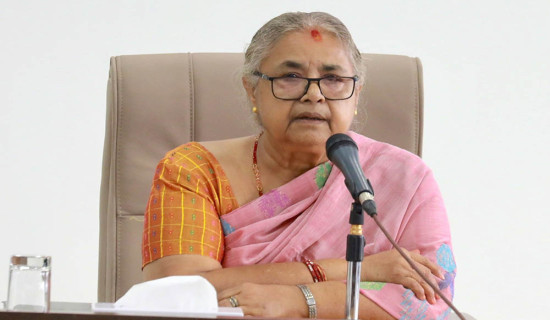Despite China’s efforts to address growing demographic imbalances, which have significant long-term economic implications, a new obstacle has emerged: Young people are choosing to remain single, diverging from societal norms due to the financial burdens associated with starting families and raising children.
The marriage rate from January to March 2024 dropped by 8.2% in the country in comparison to the first three months of 2023, data from China’s Ministry of Civil Affairs showed.
A total 1.969 million new marriages were registered from January to March 2024, compared with 2.1447 million registered in the first quarter of 2023, the Ministry of Civil Affairs said.
It is happening at the time when China is witnessing a downturn in its economy: Property market is still tottering, while high local government debt and deflationary pressure continue to be a heavy drag on the country’s economic activity. Besides, the unemployment rate among youth is very high.
According to the National Bureau of Statistics, the unemployment rate for youth aged between 16 and 24 was 14.2% in May, 2024. In the midst of such developments, cost of living continues to be expensive in the country.
The share of unmarried women of 25-29 age in urban China rose to 40.6% in 2020 from 8.6% in 2000, said The New York Times while quoting Wang Feng, a professor of sociology at the University of California.
Result is: They have a deterring effect on Chinese youth who prefer to stay single than to be bogged down by the hassles of married life.
All the more, it is happening when China is facing a decline in its population since 2022 when it reported the first major drop in the total number of people in the country since 1961 – the year of the Great Famine.
China’s National Bureau of Statistics said the country saw a population decline of 850,000 in 2022. It witnessed a further decline in population in 2023. As per the National Bureau of Statistics, the total number of people in China dropped by 2.08 million, or 0.15%, to 1.409 billion in 2023.
In the country where the population is also aging faster than almost all countries in modern history, the growing trend among Chinese youth to stay single, has set the alarm bells ringing among authorities.
Worried about its impact on the country’s national interest, President Xi Jinping in October 2023 said, “It was necessary for women to actively cultivate a new culture of marriage and childbearing and strengthen guidance on young people’s views on marriage, childbirth and family.”
An increasing number of well-educated urban residents prefer to stay alone, abhorring marriages and having kids as the cost of living is high and working hours are very long in the country. This inclination is particularly very high among youth of ages between 20 and 30, South China Morning Post said.
Experts say fewer marriages over a longer period would impact childbirths and shrink the workforce in a country which depends heavily on manufacturing.
Despite this harsh truth, young Chinese are not ready to change their attitude towards marriage. Except for 2023, when there was an uptick in the registration of new marriages in China, the number registration for new weddings saw a continuous decline from 2014 onwards.
A total 13.46 million Chinese boys and girls of marriageable age tied the knot in 2013, but the number of marriage registrations has since dropped by nearly half in successive years.
In fact, in 2022, the total number of couples who married was just 6.8 million—a 10.5% decrease from 2021, showed data from the Ministry of Civil Affairs, which started releasing statistics on marriages since 1986.
To tame the tide of declining marriage rate, the government-backed China Family Planning Association launched a pilot programme advocating “a new concept of marriage and childbearing.”
This programme rolled out in 2022 in several Chinese cities—focussed on motivating young people to get married at proper age. Along with this, the programme encouraged couples to share child-rearing responsibilities.
Besides, some provinces in the East Asian nations resorted to incentivising wedlock among youth. For example, Changshan county in China’s Zhejiang province in 2022 announced a cash reward of 1,000 yuan (US$138) to newlyweds if the bride was aged 25 or younger.
In eastern China’s Zhejiang province’s Shaoxing city, authorities rolled out a string of measures in April 2023 and they included offering a gift package worth 1,000 yuan to newlyweds, extended marriage leave, maternity and health insurance, housing supply and tax subsidies, Global Times said.
Despite such measures, and parental pressure, young Chinese people of marriageable age resist from settling down in life. Some experts from China’s matchmaking industry term it as ‘millennial’s mentality.’
Its effort to encourage young people to get married and have more children is also not gaining acceptability among youth because economic insecurity continues to weigh heavy on them.
They say children of the post-80s and the post-90s generations are well educated, financially and mentally independent and they know what they want in a partner and have a clear understanding of marriage as they would rather stay single if they are not able to find someone of their likings.
The share of unmarried women of 25-29 age in urban China rose to 40.6% in 2020 from 8.6% in 2000, said The New York Times while quoting Wang Feng, a professor of sociology at the University of California.
Chinese are also getting married later in life. Data from China’s national censuses in 2010 and 2020 showed that the average age of people registering to marry shifted from 20-24 years of age in 2010 to over 30 in 2020. Financial insecurity has been cited as the key reason for the delayed marriage among youth.
Cultural pressure to own a home and a car before they can even begin dating is also a major reason why youth are delaying their marriage.
This apart, marriage is a costly affair in China. As per social media giant Tencent’s White Paper on marriage industry insights in 2021, the average spending per individual on a wedding was $25,000 in 2020.
Nonetheless, China is trying hard to correct demographic challenges that it faces on account of declining population, which is also aging very fast.
Its effort to encourage young people to get married and have more children is also not gaining acceptability among youth because economic insecurity continues to weigh heavy on them.












